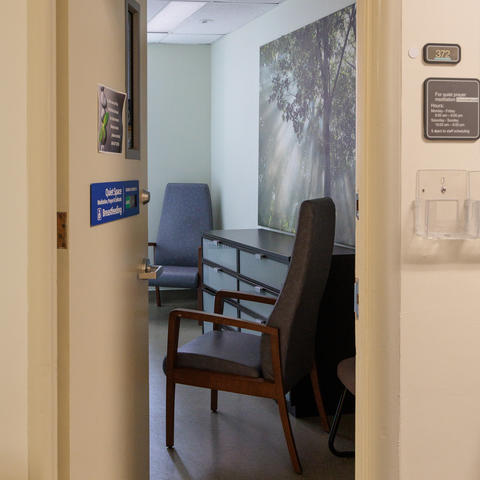Perinatal depression
Information about Providence Health Care's services and resources for people living with perinatal depression.
Overview
Perinatal depression occurs during pregnancy or within the first year after your baby is born. When it occurs after your baby is born, it is often called postpartum depression. Perinatal depression is a common mental health condition. It affects up to 20 per cent of pregnant people. It can significantly impact both the parent and the baby.
Symptoms of perinatal depression include:
- persistent sadness
- feelings of anger, irritability and/or rage
- anxiety and fatigue
- changes in appetite or sleep
- feelings of guilt or inadequacy
In severe cases, perinatal depression can lead to thoughts of self-harm or harming the baby. Early intervention is crucial for the well-being of both the parent and baby.

Diagnosis & testing
Perinatal depression is a serious condition. If you have any of the symptoms listed above, see your health care provider. Identifying and treating perinatal depression early is important for your and your baby's health.
Your health care provider will diagnose perinatal depression based on your symptoms and history. They may also use screening tools like standardized questionnaires.
Treatment & management
Perinatal depression is treatable. There are many options to consider when looking for the correct treatment option. You should consult your doctor or therapist to find the right plan for you. Possible treatments include:
- Lifestyle and Social Support: Prioritizing sleep and making time for activities you enjoy can help. Some people find support groups helpful.
- Psychotherapy: Cognitive behavioral therapy and interpersonal therapy are the most common therapies. They help you change negative thought patterns and improve your relationships with others. These two things are important for your recovery.
- Medication: Medication may be an option. Consult your doctor to see what will work for you. Antidepressants medications are most commonly used to treat depression.
Clinics that treat perinatal depression
Support services
Providence Health Care offers a variety of services to support those we care for. The following services may be of use or benefit to you and your families.
Support for Indigenous Peoples
The Indigenous Wellness Liaison Team is here to support your health journey. Team members offer cultural support and healthcare advocacy. Learn more below or call them at 604-682-2344,62937 or email IWL@providencehealth.bc.ca.
Education & resources
Patient-centred help, resources and education about perinatal depression come from many sources. Some of them listed here are supplied by Providence Health Care, but other useful resources about perinatal depression are available from the community and from online supports.
Patient education
Useful resources
Our perinatal resources page has a list of helpful resources about reproductive mental health.
Patient communities
Clinical trials & research
Advances in treatments are all thanks to medical research. While participating in research is a decision you should make for yourself in consultation with your care team, there is much activity in this area so please ask us about our research programs if you’re interested.
By taking part in research, you can help us all learn more about advancing health outcomes and find better ways to help people live and thrive. While you cannot assume benefit to yourself, your participation can make a difference in improving care for future patients.
The following clinical trials are currently enrolling volunteers. Please ask your care team for more information or contact the research team listed on each study or trial. For other information about research at Providence Health Care, please visit Providence Research.
Medical & professional referrals
You need a referral from a doctor to attend Providence Health Care’s reproductive mental health clinic.
News & stories
Last reviewed: May 6, 2025


